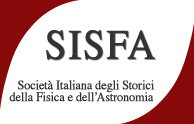Speaker
Description
Neither solid state nor condensed matter physics existed at the end of World War II. Physical problems related to the properties of materials, of course, have a much longer history, but the physics community was not yet subdivided in a way that recognised those efforts as distinct branches of physics. By the time condensed matter physics became the preferred term in the late 1970s, it was far and away the largest subfield of physics. As condensed matter physics grew, it nevertheless struggled for popular recognition and professional prestige. The reputation for uncovering nature’s deepest secrets resided with high energy physics and cosmology. Condensed matter physics did, however, become king in another sense. Its rise reconfigured how the field of physics itself was defined and internally organised. It reflected new ideas about what it meant to be a physicist and challenges to the cherished ideals upon which the twentieth-century physics community had been founded. By tracing the emergence of solid state and condensed matter physics as new ways of organising physicists’ labour, this talk will argue that further attention to the sciences of materials is necessary to encourage a thoroughgoing understanding of the history of physics in the twentieth century.

